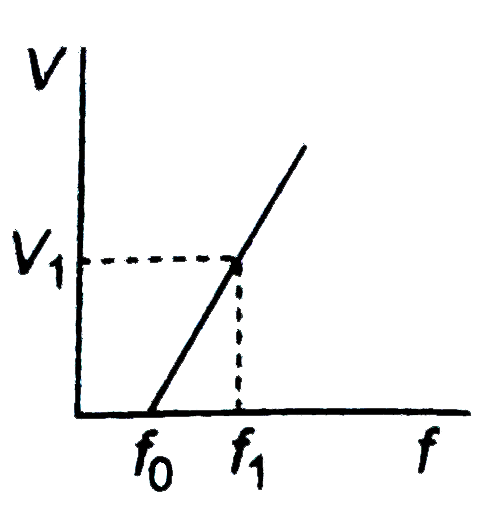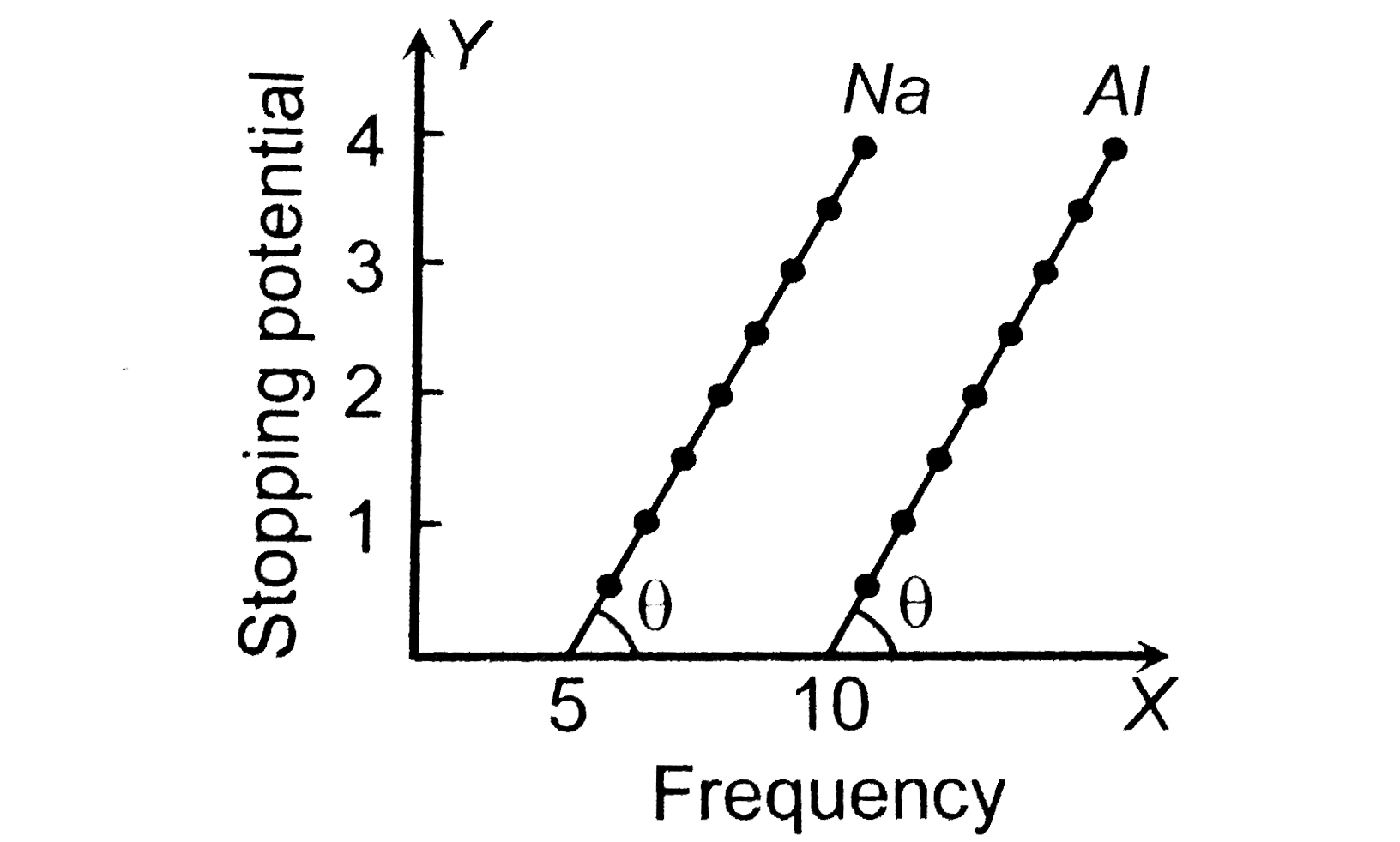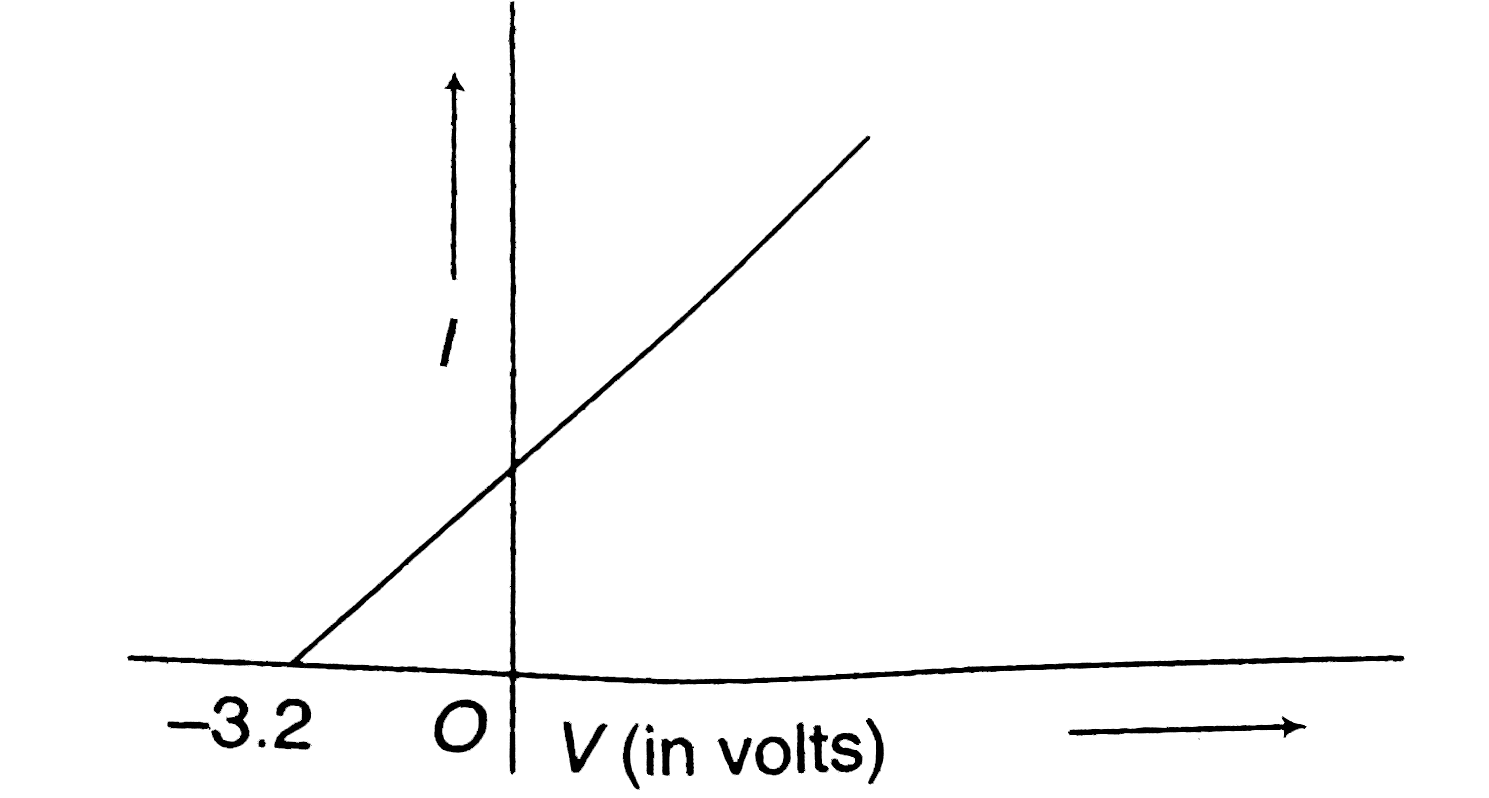Complete Solutions to Exercise 2 of chapter ELECTRONS AND PROTONS of Class 12 book with complete answers and questions
| Class 12 | PHYSICS |
| Chapter | ELECTRONS AND PROTONS |
| MHTCET PREP GUIDE | Exercise 2 |
| Number Of Questions | 29 |
| Academic Year | 2023-24 |
A tiny spherical oil drop carrying a net charge q is balanced in still air with a vertical uniform electric field of strength `(81pi)/(7)xx10^5Vm^-1`. When the field is switched off, the drop is observed to fall with terminal velocity `2xx10^-3ms^-1`. Given `g=9.8ms^-2`, viscoisty of the air `=1.8xx10^-5Nsm^-2` and the denisty of oil `=900kg m^-3`, the magnitude of q is
View SolutionWhen a cathode ray tube is operated at 2912 V, the velocity of electrons is `3.2xx10^(7)ms^(-1)`. Find the velocity of cathode ray if the tube is operated at 5824V.
View SolutionIn a cathode ray oscillograph, the focusing of beam on the screen is achieved by
View Solutionif e/m of electron is `1.76xx10^(11)C(kg)^(-1)` andn stopping potential is 0.71 V, then the maximum velocity of the photoelectron is
View SolutionThe voltage applied to an electron microscope to produce electrons of wavelength `0.50 Å` is
View SolutionA radiotransmitter operates at a frequency 1000 kHz and a powerr of 66 kW. Find the number of photons emitted per second
View SolutionWhen a surface 1 cm thick is illuminated with light of wavelength `lambda`, the stopping potential is `V_(0)`, but when the same surface is illuminated by light of wavelength `3lambda`, the stopping potential is `(V_(0))/(6)`. Find the threshold wavelength for metallic surface.
View SolutionIn a photoelectric effect measurement, the stoppingg potential for a given metal is found to be `V_(0)` volt, when radiation of wavelength `lamda_(0)` is used. If radiation of wavelength `2lamda_(0)` is used with the same metal, then the stopping potential (in V) will be
View SolutionThe work function of a substance is 4.0 eV. The longest wavelength of light that can cause photoelectron emission from this substance is approximately:
View SolutionThe act of photoelectric effect taking place with a certain photosensitive metal depends upon
(i) frequency annd
(ii) intensity of the incident radiation.
View SolutionA point source of light is used in a photoelectric effect. If the source is removed farther from the emitted metal, the stopping potential
View SolutionIf the frequency of light in a photoelectric experiment is doubled the stopping potential will
View SolutionThe cathode of a photoelectric cell is changed such that the work function changes from `(W_(1) to W_(2) (W_(2) gt W_(1))`. If the current before and after change are `I_(1)` and `I_(2)`, all other conditions remaining unchanged , then (assuming `hv gt W_(2)`)
View SolutionIn a photoelectric experiment, the potential difference V that must be maintained between the illuminated surface and the collector so as just to prevennt any electron from reaching the collector is determined for different frequencies f of the incident illumination. the graph obtained is shown in the figure. the maximum kinetic energy of the electrons emitted at frequency `f_(1)` is

View Solutionwhat should be the velocity of an electron so that its momentum becomes equal to that of a photon of wavelength `5200 Å`
View SolutionFrom the figure describing photoelectric effect we may infer correctly that

View SolutionCathode rays enter a magnetic field makin oblique angle withh the lines off magnetic induction. What will be the nature of the path followed?
View SolutionThe work function for aluminium is 4.125 eV. The cut-off wavelength for photoelectric effect for aluminium will be
View SolutionAccording to Einstein's photoelectric equation, the plot of the maximum kinetic energy of the emitted photoelectrons from a metal versus frequency of the incident radiation gives a straight line whose slope
View SolutionPhoton and electron are given same energy `(10^(-20) J)`. Wavelength associated with photon and electron are `lambda_(ph)` and `lambda_(el)` then correct statement will be
View SolutionMatch column I (fundamental experiment) with column II (its conclusion) and select the correct optionn from the choices given below:

View SolutionWhen a certain metallic surface is illuminated with monochromatic light of wavelength `lambda`, the stopping potential for photo electric current is `6 v_(0)`. When the same surface si illuminated with light of wavelength `2 lambda`, the stopping potential is `2v_(0)`. The threshold wavelength of this surface for photoelectric effect is -
View SolutionWhich of the following figure represents the variation of particle momentum and the associated de - Broglie wavelength ?
View SolutionThreshold wavelength for lithium metal is 6250 Å. For photo emission, the wavelength of the incidennt light must be
View SolutionIn a photoelectric experiment the relation between applied potential difference between cathode and anode V and the photoelectric current cathode and anode V and the photoelectric current l and was found to be shown in graph below. If planck's constant `h=6.6xx10^(-34)`Js, the frequency of incident radiation would e nearly (in `s^(-1)`)

View SolutionPhotoelectric effect experiments are performed using three different metal plates `p,q` and`r` having work function `phi_(p) = 2.0 eV, phi_(e) = 2.5 eV and phi_(r) = 3.0 eV` respectively A light beam containing wavelength of `550nm , 450 nm` and `350nm ` with equal intensities illuminates each of the plates . The correct `I -V` graph for the experiment is [Take hc = 1240 eV nm]
View SolutionLight of two different frequencies whose photons have energies 1eV and 2.5 eV respectively illuminate a metallic surface whose work function is 0.5 eV successively. Ratio of maximum kinetic energy of emitted electrons will be:
View SolutionLight of intensity `10^(-5)Wm^(-2)` falls on a sodium photocell of surface area `2cm^(2)`. Assuming that the top 5 layers of sodium absorb the incident energy, estimate the time required for photoelectric emission in the wave picture of radiation. The work function of the metal is given to be about 2eV. What is the implication of your answer? effective atomic area `=10^(-20)m^(2)`.
View SolutionWork function for caesium metal is 2.14 eV. Let a beam of light of frequency `6xx10^(14)Hz` incident over the metal surface.
Now, match the following columns and choose the correct option from code given.

View Solution
Exercise 2 questions and complete solutions for chapter ELECTRONS AND PROTONS of MHTCET PREVIOUS YEAR PAPERS AND PRACTICE PAPERS of Class 12